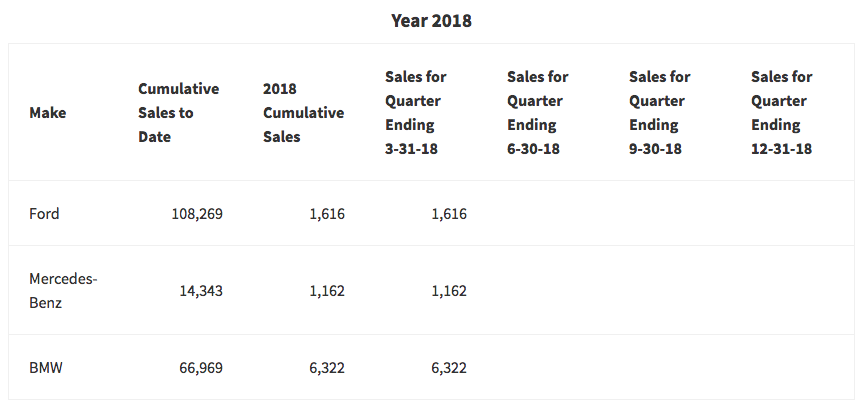Want to know how many electric vehicles have been sold in the US by auto manufacturers since the Federal electric vehicle tax credit went into effect since January 1, 2010?
Tesla recently confirmed (see my CleanTechnica article) they had passed the 200K sales milestone in the US in July, but did not share actual numbers. And a GM spokesperson told me that they believed they would reach the 200K milestone before the end of the year.
A lot of interested parties want this data to know when the tax credit phase out might be triggered for buyers of EV models from specific brands. This information has been estimated by many, but for the most part kept private, except for this little-known specific IRS reporting page that I’ve been monitoring for the last 18 months.
The page provides quarterly EV sales statistics for auto manufacturers, but you will notice that only 3 are included, BMW, Ford and Mercedes-Benz. As of the end of Q1 those 3 OEMs have reported:
So what gives about this IRS reporting on what is commonly referred to as the Federal Electric Vehicle Tax Credit, but is formally known as IRC 30D Plug In Electric Drive Motor Vehicle Credit? Where is EV sales data from the 13 other auto manufacturers (as defined by the IRS) that have sold electric vehicles in the US?
I reached out to the IRS and discovered why no data exists for Tesla, GM, Nissan, FCA (Fiat, Chrysler), Kia, Hyundai, Volvo, Mitsubishi, Toyota, Mini, Honda, Porsche, Audi, and Volkswagen.
The reason is these automakers did not provide a waiver of their rights to this US code: 26 U.S. Code § 6103 – Confidentiality and disclosure of returns and return information. In essence, this US code states that tax related information cannot be revealed to the public, unless an individual or entity waves their right to confidentiality.
So only 3 out of 17 auto manufacturers have executed the waiver of this rule which allows the IRS to make the EV sales data publicly available. So for now, we are left guessing for the rest of the automakers.
Secondly, while IRC 30D requires auto manufacturers to report quarterly EV sales data in a timely manner, without the waiver the IRS cannot even comment on whether a manufacturer has provided this data. The IRS spokesperson said that they would not report publicly on a manufacturer reaching the 200,000 sales milestone unless they have waived rule 6103.
Both Tesla and GM spokespeople would not comment on why they haven’t waived rule 6103. However, the GM spokesperson did say they have been providing sales numbers to the IRS and expect to reach 200,000 EVs sold by the end of 2018.


